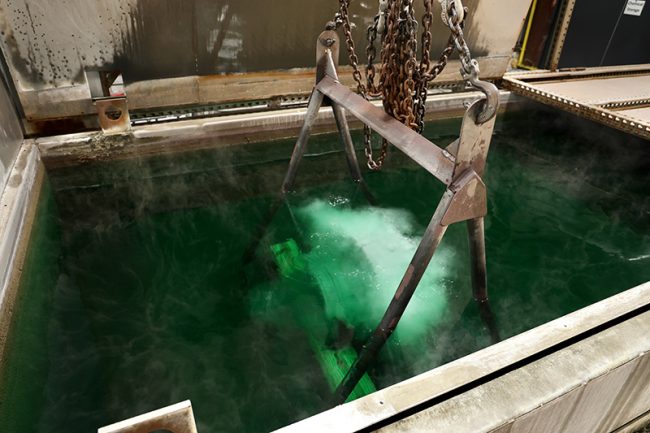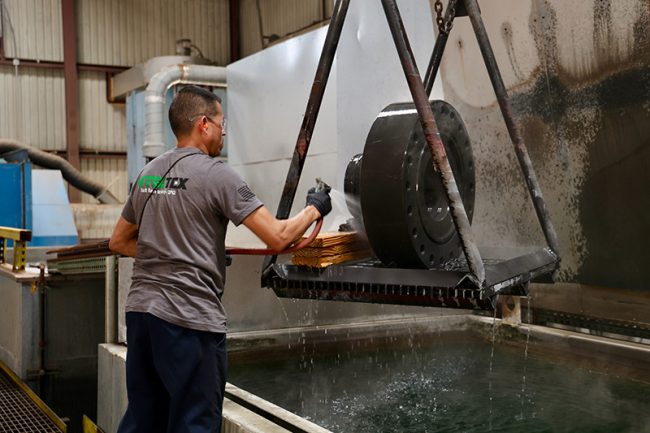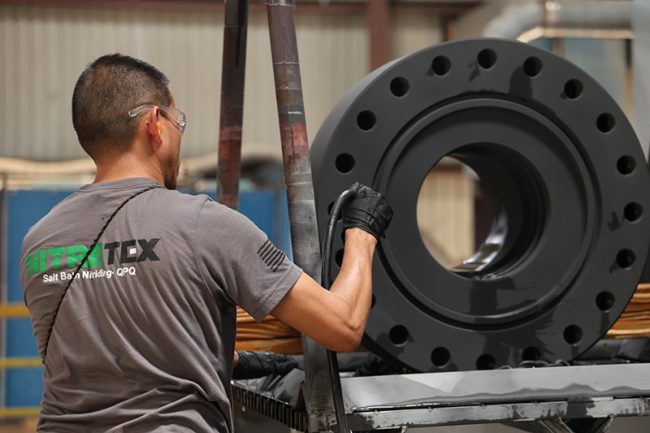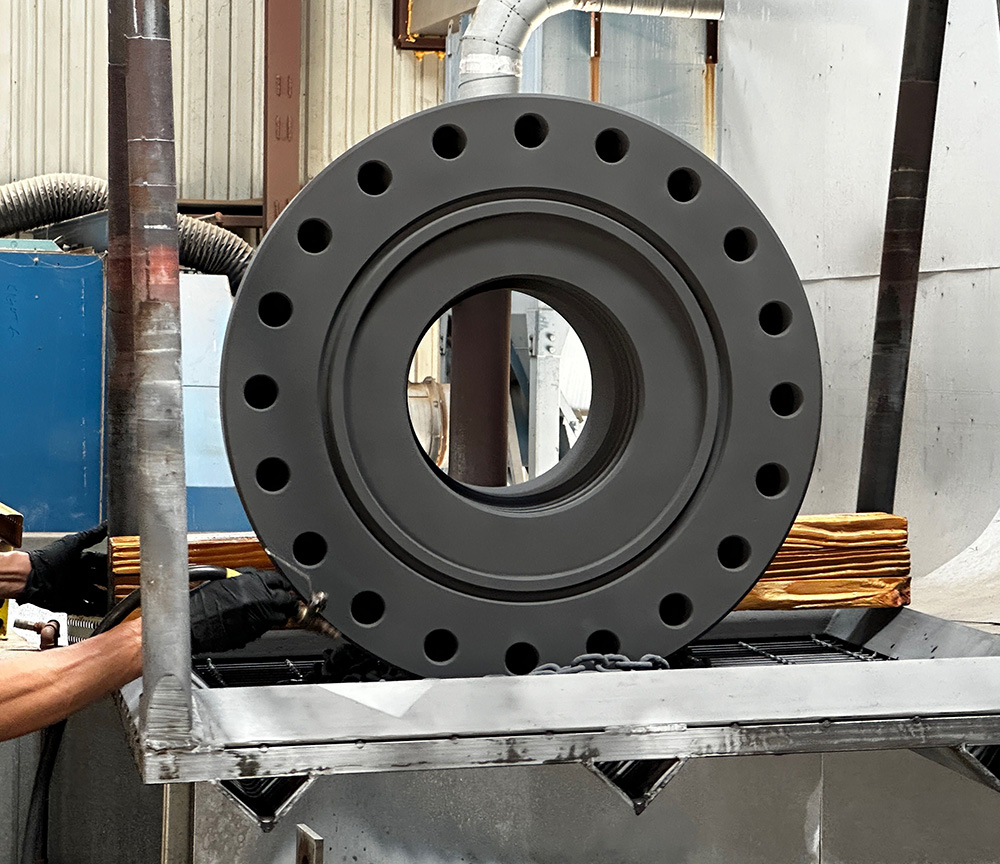PHOSPHATE CONVERSION COATINGS
PHOSPHATE CONVERSION COATINGS
Phosphate conversion coatings are chemical treatments that create a crystalline phosphate layer bonded to the surface of metal parts. The coating provides improved adhesion for paint or oil, corrosion resistance, and better friction control on moving parts. At Nitretex, our focus is on two phosphate coating types: zinc phosphate and manganese phosphate.
Zinc Phosphate Coating
Zinc phosphate coating is mainly used for rust proofing and as a paint base on ferrous metals. It produces a fine-grained crystalline layer that bonds strongly to the surface, helping subsequent coatings adhere firmly.
Color: Dark gray to black
Coating Weight: Around 500-1850 mg/sq. ft
Top Coats: Oil or Paint
Applications:
- Common on fasteners, brackets, and housings where corrosion protection is needed before painting.
- Often used in Oil & Gas, automotive, and equipment manufacturing where parts face harsh outdoor or chemical environments.
Advantages:
- Good rust prevention
- Excellent paint adhesion
- Can be used as a base for additional coatings or sealers
- Lighter coating weight than manganese phosphate, ideal for painted parts



Manganese Phosphate Coating
Manganese phosphate coating is applied by immersion and forms a harder, darker finish than zinc phosphate. It offers superior wear resistance, lubricity, and anti-galling properties. This makes it well-suited for parts that move or experience friction.
Color: Dark gray to black
Coating Weight: Around 1500-3,000 mg/sq. ft
Top Coats: Oil or Lubricant
Applications:
- Bearings, gears, bushings, fasteners, and engine parts
- Common in automotive transmissions, firearms, and heavy machinery
Advantages:
- Excellent wear and abrasion resistance
- High load-carrying ability when lubricated
- Strong anti-galling performance during break-in and long-term use
PROCESS CAPABILITIES
Large & Small Batch Processing
We handle full production orders or single custom parts.
Phosphate Tank Dimension
22’ L x 6’W x 4’ Depth
Complex Geometries
The process applies even coating on complicated shapes, inside holes, and along edges.
Integrated Finishing Options
We can add oil impregnation, lubricants, or combine it with other coating steps to improve performance.

Phosphate Conversion Process
This is a step-by-step chemical process, and each stage plays a part in how the coating forms and performs. Below is how our phosphate coating company gets a consistent and bonded finish every time.
- Cleaning & Degreasing: The part is cleaned to remove oils, dirt, rust, and scale.
- Phosphate Bath: The part is immersed in a heated phosphate solution, and a crystal layer forms chemically on the surface.
- Rinsing & Neutralizing: The reaction is stopped and residues are washed off.
- Sealing & Post-Treatment: Oil may be applied to improve corrosion and wear properties.
- Inspection: The coating is checked for thickness, coverage, and adhesion.
FAQs – Phosphate Conversion
What do phosphate coatings do?
They provide corrosion resistance, better paint adhesion, and improved friction performance on metal parts.
How thick is the coating?
Usually 2-15 microns, depending on type and purpose.
What metals can be treated?
Mainly steel and iron alloys. Aluminum and stainless steel do not form phosphate coatings properly.
Is phosphate conversion coating the same as Parkerizing?
Yes, Parkerizing is a term often used for manganese or zinc phosphate coatings, especially in firearms.
Can phosphate coatings be painted or oiled afterward?
Yes. They are commonly used as a base layer for paint, powder coat, or oil.
Related Services
These services are often paired with phosphate conversion or requested as stand-alone options. They cover hardening, finishing, and surface prep so the part performs better in the field.
Salt Bath Nitriding
Thermochemical treatment that hardens the surface and makes it more resistant to wear and fatigue.
Learn more >
Blasting Services
Abrasive cleaning and surface preparation that removes scale, rust, and contaminants before coating.
Learn more >
Spray Coatings
Thermal and protective layers applied by spray for specialized surface protection.
Learn more >
INDUSTRIES WE SERVE
Nitretex specializes in delivering advanced surface treatment services – including Liquid Ferritic Nitrocarburizing (Salt Bath Nitriding/QPQ), spray coatings, phosphate conversion, and blasting – to a variety of industries worldwide.